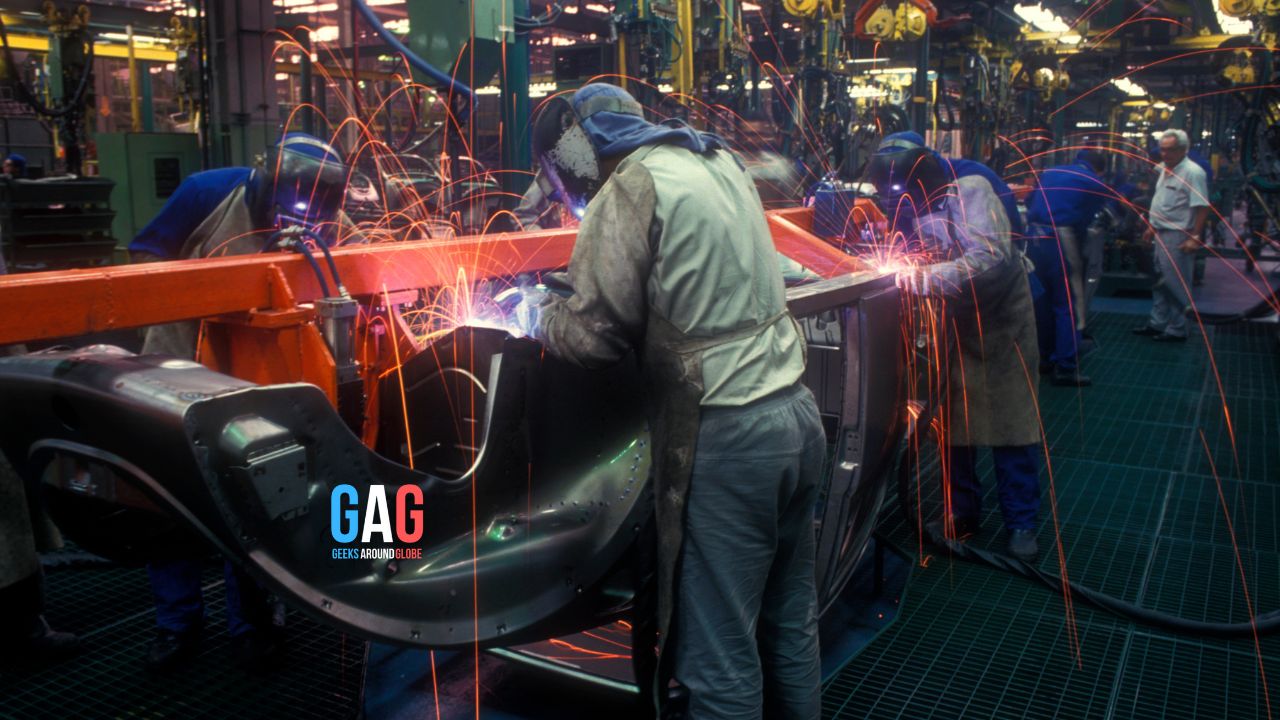- 1. The Role of Supply Chain Analytics Software in the Automotive Industry
- 2. Enhancing operational efficiency and productivity:
- 3. Improving demand forecasting and inventory management:
- 4. Optimizing supplier collaboration and procurement processes:
- 5. Key Features and Capabilities of Supply Chain Analytics Software
- 6. Real-time data analytics and visualization:
- 7. Predictive modeling and demand forecasting:
- 8. Inventory optimization and supply-demand matching:
- 9. Case Studies: Successful Implementation in the Automotive Industry
The Role of Supply Chain Analytics Software in the Automotive Industry
Supply chain analytics software plays a crucial role in revolutionizing the automotive industry by optimizing operations and enhancing efficiency. By leveraging this powerful supply chain solution, automotive manufacturers can improve operational processes, streamline demand forecasting, and enhance collaboration with suppliers and procurement processes.
Enhancing operational efficiency and productivity:
Supply chain analytics software enables automotive manufacturers to gain real-time insights into their operations, identify bottlenecks, and optimize processes for improved efficiency. By analyzing data related to production, inventory, and logistics, manufacturers can identify areas of improvement, streamline workflows, and eliminate waste. This leads to enhanced productivity, reduced lead times, and improved overall operational efficiency.
Improving demand forecasting and inventory management:
Accurate demand forecasting and efficient inventory management are critical for the automotive industry. Supply chain analytics software utilizes advanced algorithms and historical data to generate accurate demand forecasts. Manufacturers can leverage these insights to optimize inventory levels, minimize stockouts, and avoid excess inventory. By aligning production and procurement activities with demand forecasts, automotive companies can enhance customer satisfaction while reducing costs.
Optimizing supplier collaboration and procurement processes:
The automotive industry heavily relies on a vast network of suppliers. Supply chain analytics software enables manufacturers to optimize supplier collaboration and procurement processes. By analyzing supplier performance metrics, manufacturers can identify reliable and high-performing suppliers, negotiate better contracts, and reduce supply chain risks. Advanced analytics also enable manufacturers to streamline procurement processes, automate supplier onboarding, and improve overall supply chain transparency.
Key Features and Capabilities of Supply Chain Analytics Software
Supply chain analytics software offers key features and capabilities that empower the automotive industry to optimize their operations and make informed decisions. By leveraging this supply chain solution, automotive manufacturers can benefit from real-time data analytics, predictive modeling, and inventory optimization to streamline their supply chains.
Real-time data analytics and visualization:
Supply chain analytics software provides real-time data analytics, enabling automotive manufacturers to monitor and analyze their supply chain performance. By collecting data from various sources, the software generates insightful visualizations and dashboards that allow manufacturers to track key performance indicators (KPIs) and identify trends, patterns, and anomalies. Real-time analytics and visualization provide actionable insights, enabling quick decision-making and proactive management of the supply chain.
Predictive modeling and demand forecasting:
Supply chain analytics software utilizes advanced algorithms and predictive modeling techniques to forecast demand accurately. By analyzing historical data, market trends, and external factors, the software generates demand forecasts that enable manufacturers to anticipate future demand patterns. This allows automotive companies to align production capacities, optimize inventory levels, and improve order fulfillment. Accurate demand forecasting helps manufacturers avoid stockouts, minimize excess inventory, and enhance customer satisfaction.
Inventory optimization and supply-demand matching:
With supply chain analytics software, automotive manufacturers can optimize their inventory levels and effectively match supply with demand. The software considers factors such as lead times, production capacities, and demand variability to determine the optimal inventory levels for each product or component. By ensuring the right amount of inventory at the right time, manufacturers can minimize carrying costs, reduce stockouts, and maintain a lean supply chain. Supply-demand matching capabilities enable efficient production planning, procurement, and order fulfillment.
Real-time data analytics and visualization empower manufacturers with actionable insights for effective decision-making. Predictive modeling and demand forecasting enable accurate demand planning and inventory optimization. Supply-demand matching capabilities streamline production, procurement, and order fulfillment processes. By leveraging these features, automotive manufacturers can enhance operational efficiency, reduce costs, and improve customer satisfaction. Supply chain analytics software proves to be an invaluable solution for the automotive industry in managing complex supply chains and staying competitive in the market.
Case Studies: Successful Implementation in the Automotive Industry
The successful implementation of supply chain analytics in the automotive industry has demonstrated significant improvements in production planning, lead time reduction, demand forecasting accuracy, and stockout reduction. These case studies highlight the effectiveness of supply chain technologies and solutions in streamlining operations and driving better outcomes.
Example 1: Automaker X – Streamlining production planning and reducing lead times:
Automaker X implemented supply chain analytics to optimize its production planning processes. By analyzing historical production data, demand forecasts, and market trends, the company gained valuable insights into production capacity and demand patterns. This enabled them to develop more accurate production plans, align resources efficiently, and reduce lead times. The supply chain analytics solution provided real-time visibility into production performance, allowing Automaker X to identify bottlenecks and make data-driven decisions to improve overall productivity and customer satisfaction.
Example 2: Parts Manufacturer Y – Improving demand forecasting accuracy and reducing stockouts:
Parts Manufacturer Y faced challenges in demand forecasting and frequently experienced stockouts, impacting their customer service levels. To address these issues, they implemented supply chain analytics to enhance demand forecasting accuracy. By analyzing historical sales data, market trends, and external factors, they developed a predictive demand model that provided more accurate forecasts. This allowed Parts Manufacturer Y to optimize inventory levels, reduce stockouts, and improve order fulfillment. The supply chain analytics solution provided real-time visibility into demand patterns and enabled proactive inventory management, resulting in improved customer satisfaction and increased operational efficiency. These real case studies emphasize the significance of partnering with a reliable end-to-end supply chain visibility solutions provider that specializes in analytics and understands the unique requirements of the automotive industry. By harnessing the power of supply chain technologies and solutions, automotive companies can streamline their logistics processes, unlock valuable insights, and make informed, data-driven decisions to achieve operational excellence.







